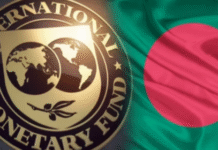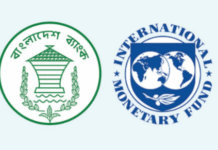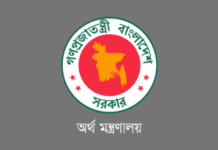
Apart from export and remittance earnings, the government has placed importance on securing more foreign funding in the current fiscal year to shield the country’s foreign currency reserves from depletion.
However, the implementation of foreign-funded projects under the Annual Development Programme (ADP) remains slow, with just 26.5 per cent of the allocation being spent in the first six months of 2022-23.
And although this indicates a 4.33 percentage-points increase in budget spending compared to the same period the year before, it is still lower than the average implementation rate in the pre-pandemic era.
In the first half of 2018-19, the execution rate was 30 per cent while it was 33 per cent during the same period the year before.
Of the total Tk 92,020 crore available for foreign-funded projects, implementing ministries and divisions were able to spend Tk 24,423 crore in the July-December period.
Last June, the government sought budgetary support from various bilateral and multilateral lenders as the forex reserves fell sharply owing to higher import bills.
As of January 18, the reserves stood at about $32.5 billion, down 28.1 per cent year-on-year, according to data from Bangladesh Bank.
At a World Bank event in Dhaka on January 22, Sharifa Khan, secretary of the Economic Relations Division, said the country’s foreign exchange reserves are rapidly depleting.
The government is not solely responsible for this situation and so, budget support could play a vital role to this end, she said.
Although government high-ups are hunting for foreign funds from development partners, the implementation data painted an opposite scenario.
“The original strategy was the right one as this is the time to accelerate the utilisation of foreign funds and minimise domestic-funded projects,” said Ahsan H Mansur, executive director of the Policy Research Institute of Bangladesh.
“But the government is moving to the opposite direction when it comes to spending foreign funds.”
Amid the dollar crunch, the implementation of the foreign-funded projects should have been maximised as much as possible, but it is not happening, he said.
Since the government has not been able to use foreign funds, it is going to slash the portion of foreign fund in the ADP by 16.4 per cent to Tk 76,954 crore in the next revision.
“This will heap pressure on the country’s balance of payments,” said Mansur.
“This is because when it comes to foreign-funded projects, imports are made using the dollars coming in, leaving some surplus in the central bank’s coffers.”
The original ADP is expected to be trimmed down by 6.1 per cent to Tk 231,000 crore, sources at the finance ministry told The Daily Star.
Overall implementation of the ADP in the first half of the current fiscal year stood at 23.53 per cent, the lowest in the last 13 years.
The rate was 24.06 per cent in the July-December period of FY22.











